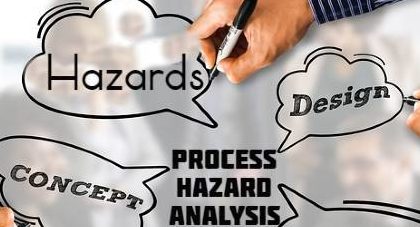Comprehensive Safety Management Outsourcing: A Guide for Site or Company

Safety Governance and Team Development Services: The Safety Master Approach
March 7, 2025
How HIRA Study & Implementation Revolutionizes Safety Practices in Indian Industries
March 10, 2025Introduction
In today’s fast-paced industrial environment, maintaining a high standard of safety management can be both complex and resource-intensive. For many companies, outsourcing safety management provides a viable solution to ensure compliance with safety regulations while focusing on core business operations. This article delves into the benefits, process, and considerations of outsourcing safety management for your site or company.
What is Safety Management Outsourcing?
Safety management outsourcing involves contracting an external provider to handle all aspects of safety management within a facility or company. This can include developing safety protocols, conducting safety audits, training employees, managing compliance with regulations, and overseeing safety operations on a day-to-day basis.
Benefits of Outsourcing Safety Management
- Expertise and Experience
- Access to a team of safety professionals with specialized knowledge and extensive experience in various industries.
- Cost-Effectiveness
- Reduces the need for hiring and training in-house safety staff, leading to significant cost savings.
- Regulatory Compliance
- Ensures that the company adheres to all relevant safety regulations and standards, thereby avoiding penalties and legal issues.
- Focus on Core Business
- Allows the company to concentrate on its primary business activities while safety management experts handle safety-related tasks.
- Enhanced Safety Culture
- Promotes a culture of safety within the organization through consistent implementation of best practices and continuous improvement.
Key Components of Safety Management Outsourcing
- Assessment and Planning
- The outsourcing provider conducts an initial assessment of the site or company to understand existing safety practices and identify areas for improvement.
- Develops a customized safety management plan tailored to the specific needs of the organization.
- Implementation
- Implements the safety management plan, including the development of safety protocols, procedures, and documentation.
- Ensures that all necessary safety measures are in place and functioning effectively.
- Training and Development
- Provides comprehensive safety training programs for employees at all levels.
- Ensures that employees are aware of safety procedures and are equipped to handle potential hazards.
- Monitoring and Evaluation
- Regularly monitors safety performance through audits, inspections, and assessments.
- Evaluates the effectiveness of safety measures and makes necessary adjustments to improve safety outcomes.
- Compliance Management
- Manages compliance with all relevant safety regulations and standards.
- Keeps abreast of changes in safety regulations and ensures that the company remains compliant.
- Emergency Preparedness
- Develops and implements emergency response plans to ensure the company is prepared for potential emergencies.
- Conducts regular drills and simulations to test the effectiveness of emergency response procedures.
Choosing the Right Safety Management Partner
When selecting a safety management outsourcing provider, consider the following factors:
- Reputation and Experience
- Choose a provider with a proven track record and positive reputation in the industry.
- Ensure they have experience working with companies similar to yours in terms of size and industry.
- Range of Services
- Ensure the provider offers a comprehensive range of safety management services that meet your specific needs.
- Customization and Flexibility
- Look for a provider that can customize their services to fit your unique requirements and is flexible in their approach.
- Communication and Support
- Opt for a provider that offers clear communication and strong support throughout the outsourcing process.
- Cost and Value
- Evaluate the cost of services in relation to the value provided. Ensure that the provider offers competitive pricing without compromising on quality.
Conclusion
Outsourcing safety management can be a strategic decision for companies looking to enhance their safety practices while focusing on their core business operations. By partnering with an experienced and reputable safety management provider, organizations can benefit from specialized expertise, cost savings, and improved safety outcomes. Implementing a comprehensive safety management plan through outsourcing ensures regulatory compliance and fosters a culture of safety, ultimately contributing to the overall success and sustainability of the company.
For companies ready to take the next step in safety management, The Safety Master offers tailored solutions designed to meet the unique needs of your site or organization. With a commitment to excellence and a focus on creating safe working environments, The Safety Master is your trusted partner in safety management.




